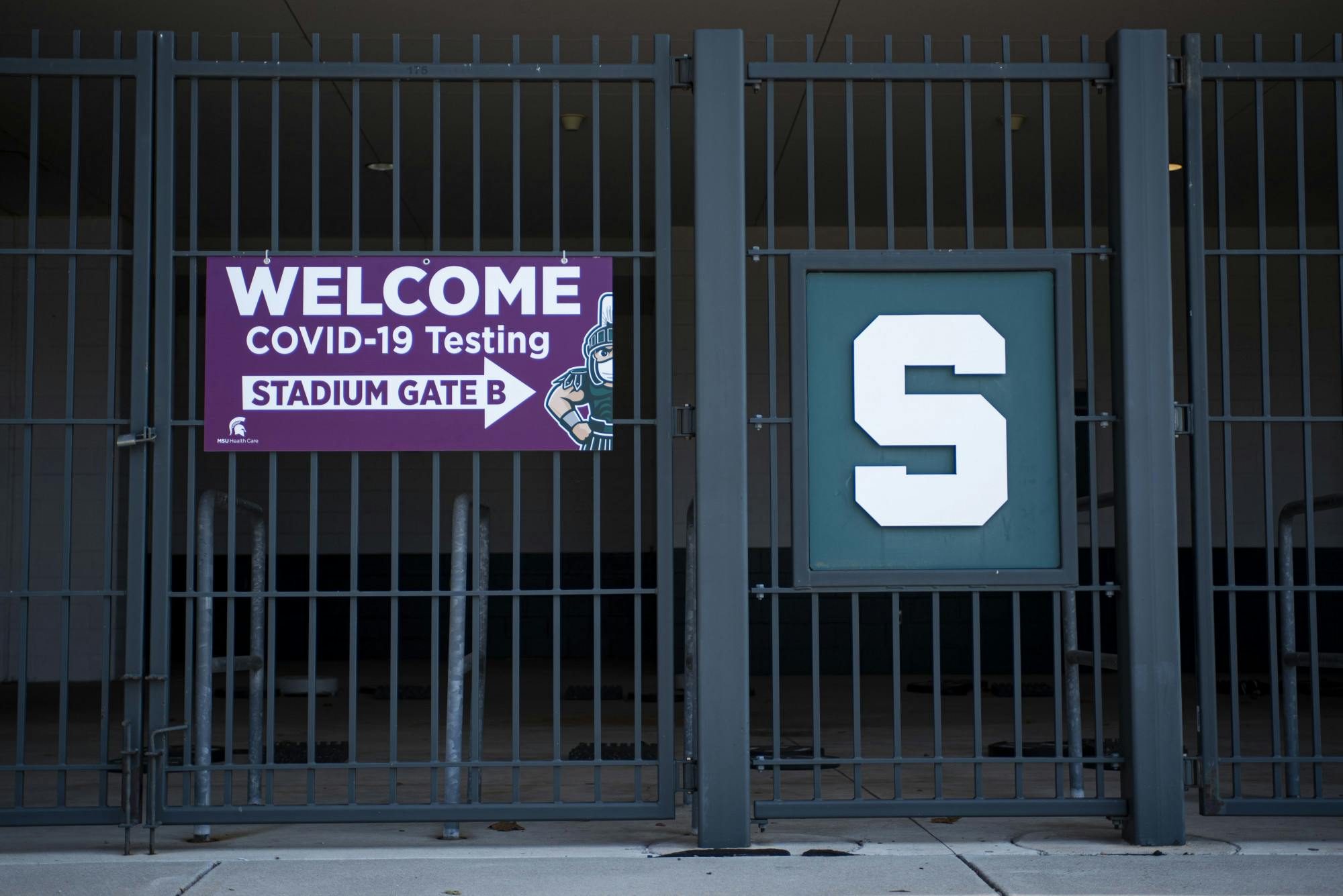One of the main factors that swayed Michigan State University President Samuel L. Stanley to vote in favor of bringing back Big Ten football this fall was the rapid daily testing and other extensive safety precautions proposed by the conference.
Athletes have strict COVID-19 safety guidelines, but when it comes to other students, the guidelines are less tight.
When a football player tests positive for COVID-19, they must wait at least 21 days and undergo cardiac tests and be approved by a cardiologist before they can return to the field.
However, if a student on campus tests positive for COVID-19, they are not mandated to quarantine or self-isolate for a specific time or at a specific place.
The Ingham County Health Department recommends a time frame to quarantine students on a case by case basis.
“For the cases that we have had on campus majority have been able to stay in their existing location,” MSU spokesperson Emily Guerrant said.
When a student gets tested at Spartan Stadium or Olin Health Center, MSU bills their insurance company first. If the insurance company doesn’t cover it, then they will use funding from the Coronavirus Aid, Relief, and Economic Security, or CARES, act to cover the cost.
Testing for football players is covered by the Big Ten conference.
The switch to solely virtual instruction at MSU resulted in a lower amount of students living on campus. In most cases, there is only one person per dorm suite, but some students do have a suitemate they share a bathroom with.
The Kellogg Center is an option for quarantine or self-isolation, but it is mostly used for students who test positive and have a roommate or suitemate. Otherwise, students can self-isolate in their dorm.
Football players are tested daily. There is daily testing available at Spartan Stadium available for students, but they are not required to be tested.
Depending on where they get tested, students are also not obligated to report their test results to MSU if they test positive.
Specifics of the football team's testing
“MSU didn’t make it clear at all on any of the websites or anything that they were doing testing," Computer science senior Sara Seryani said. "I also called Olin to see if I could get a test and they were like 'Oh you don’t need it,' pretty much.”
The Ingham County Health Department notifies the school if someone on campus tested positive for COVID-19, but does not identify the student.
If a student gets tested at Spartan Stadium or at Olin, MSU automatically gets those results.
“If we did have mandatory required weekly testing like a lot of universities have put in place then a lot of problems… will be solved," Seryani said. 5:13
Students living on campus at Ohio State University and Northwestern University are required to do a weekly COVID-19 test in order to stay on campus.
Northwestern students are also required to fill out a self-isolation form if they were tested off-campus and the test was positive.
Support student media!
Please consider donating to The State News and help fund the future of journalism.
Discussion
Share and discuss “How football player COVID-19 testing differs from other on-campus students” on social media.







